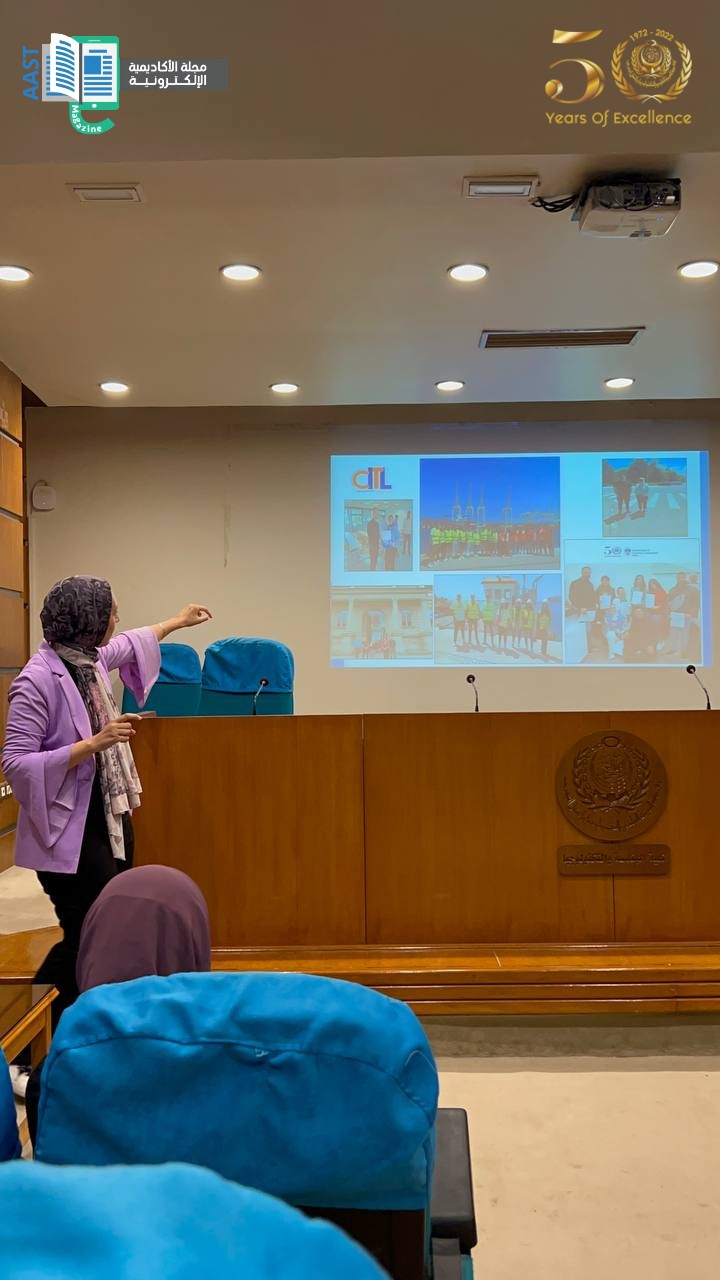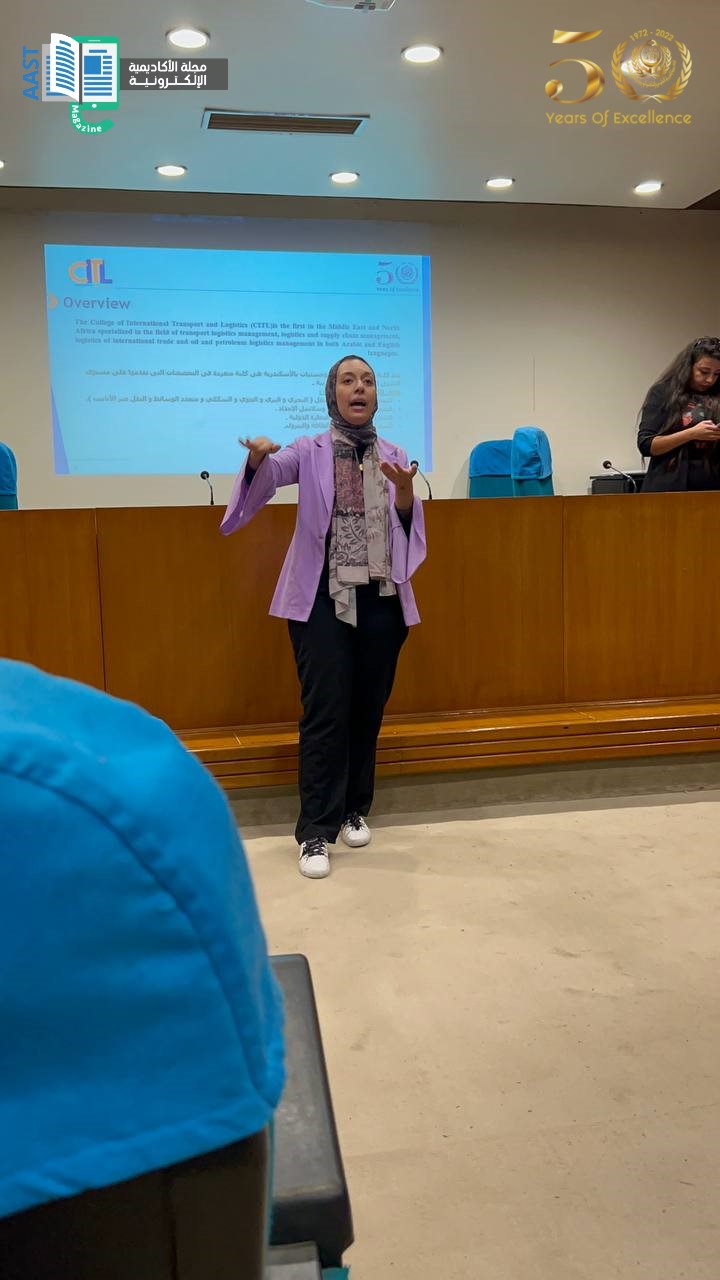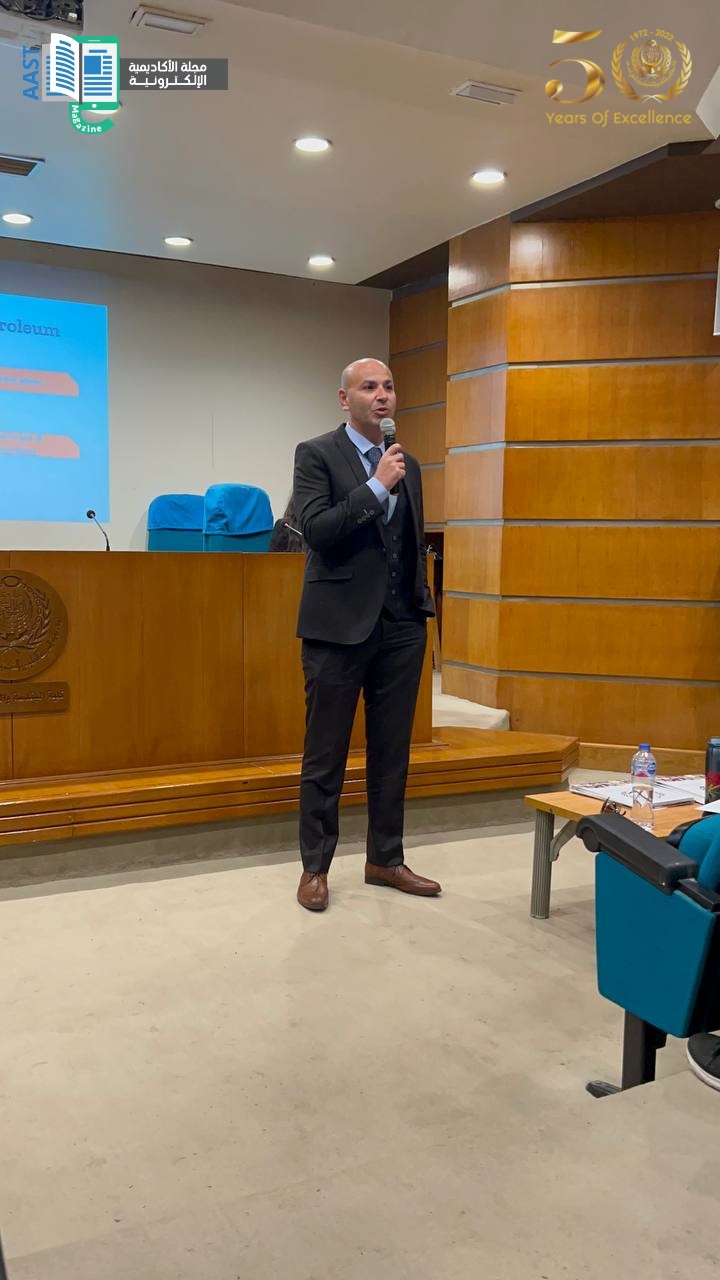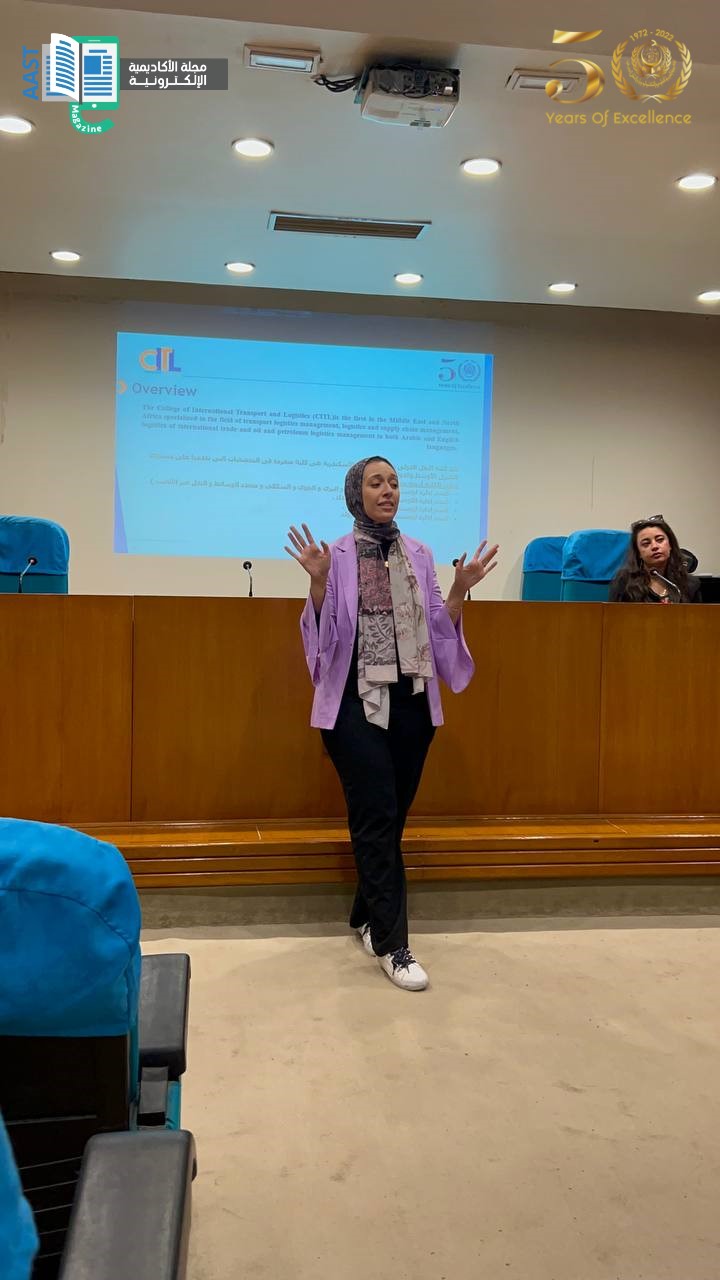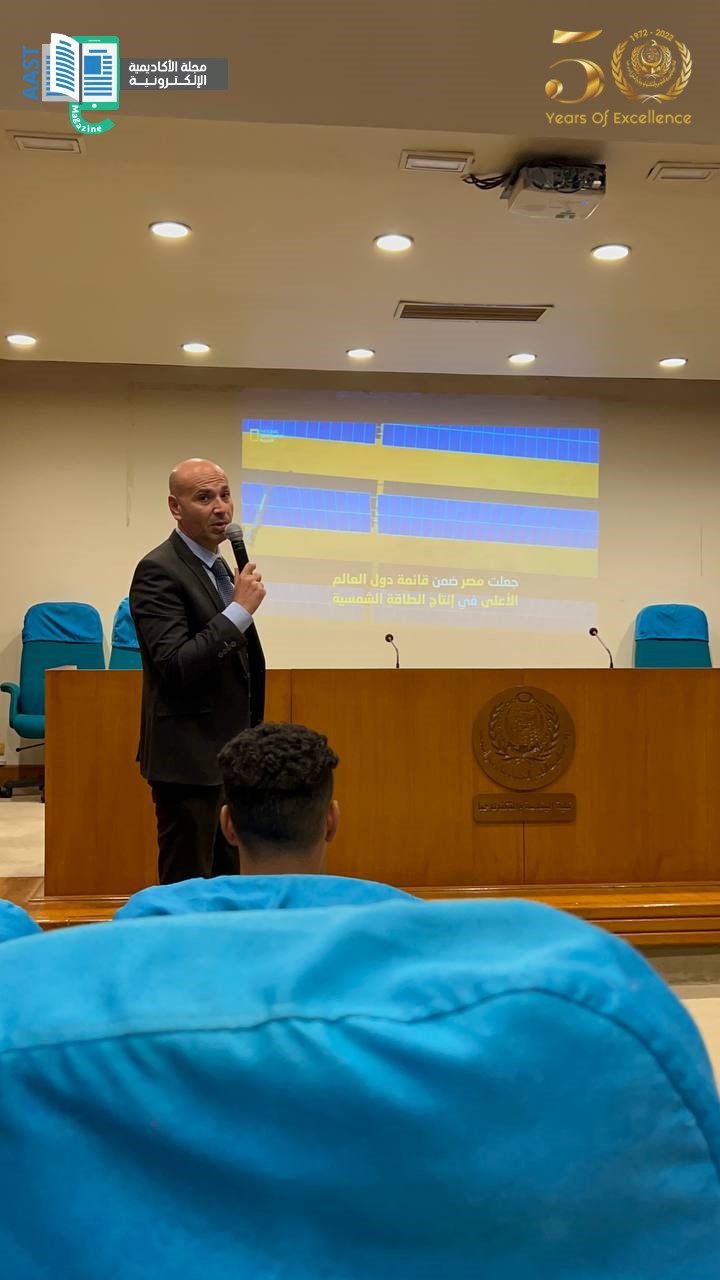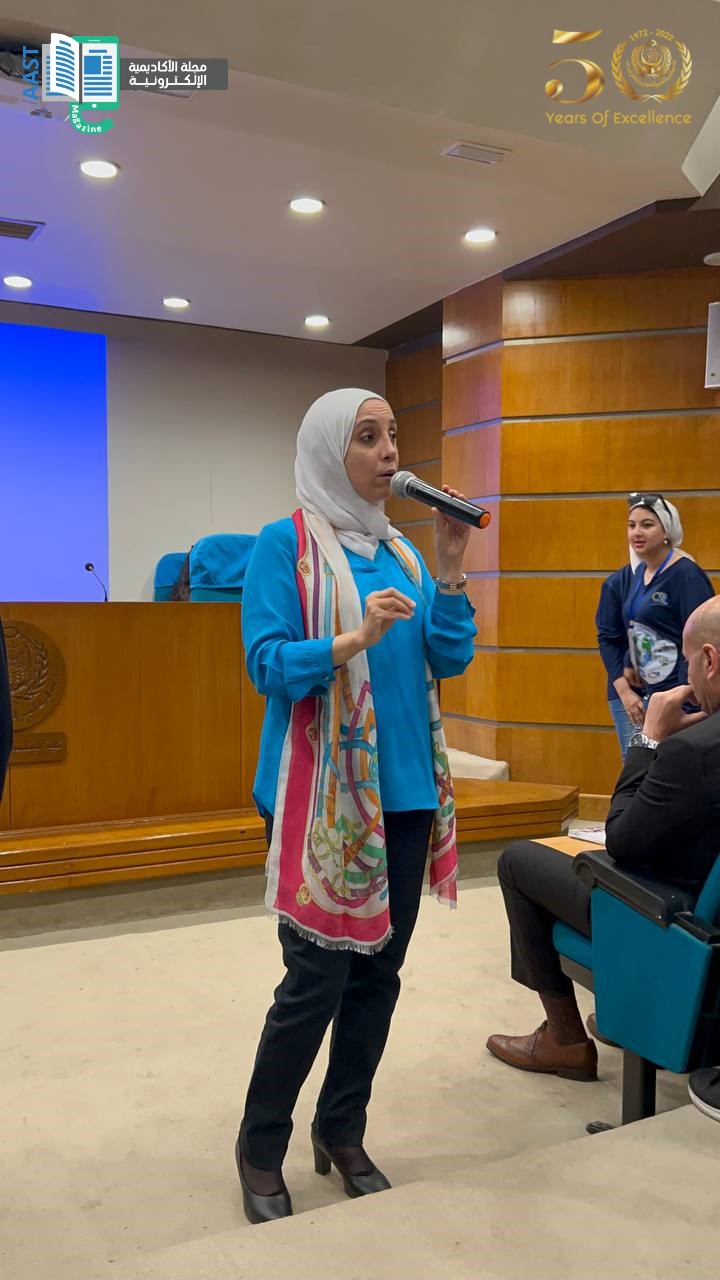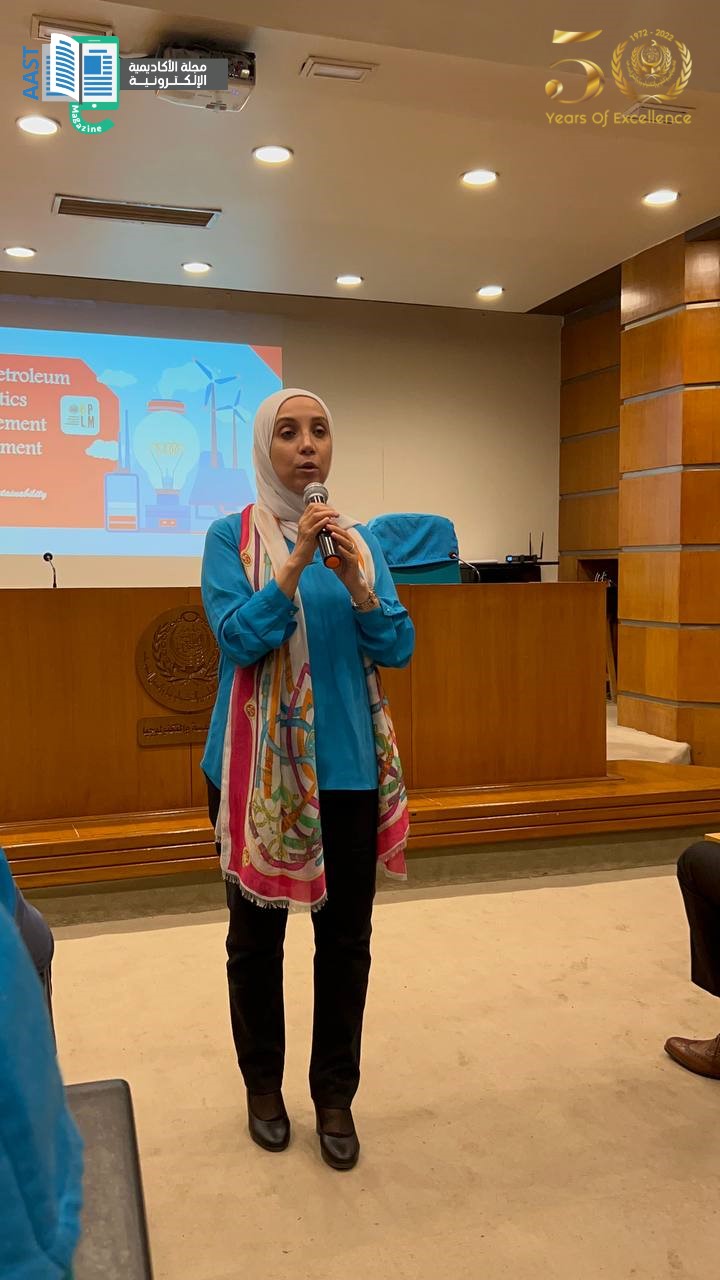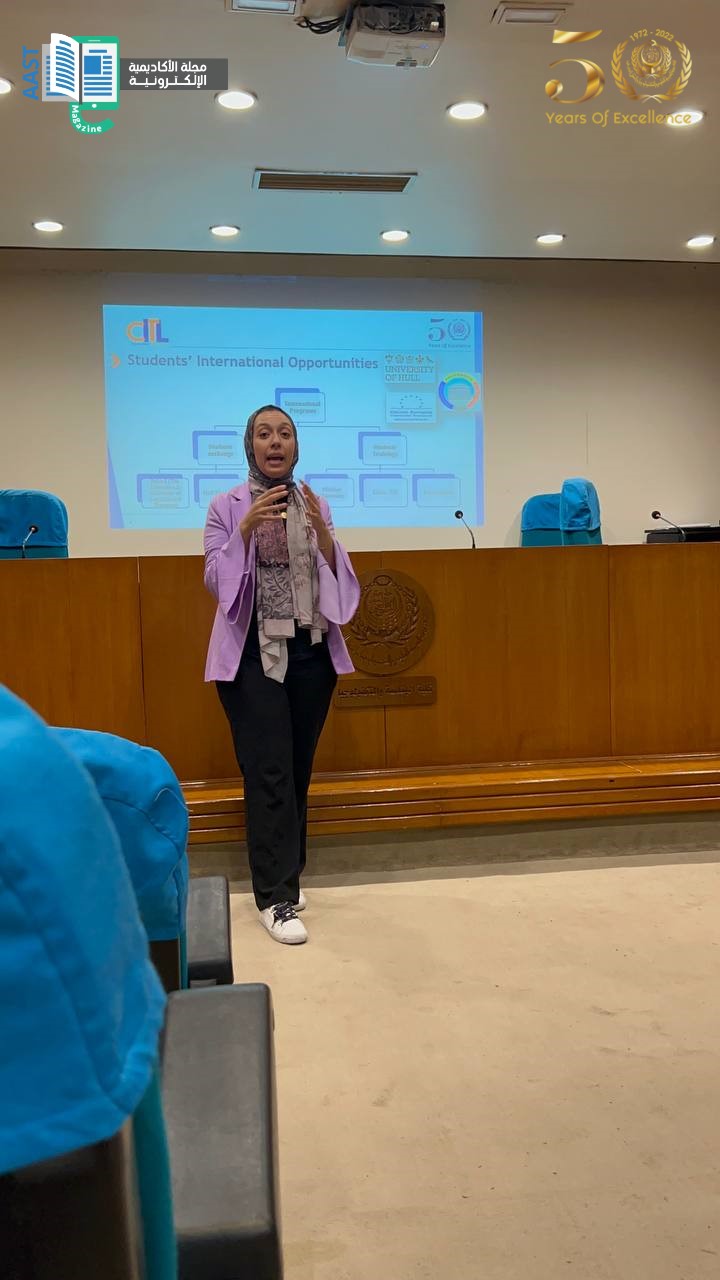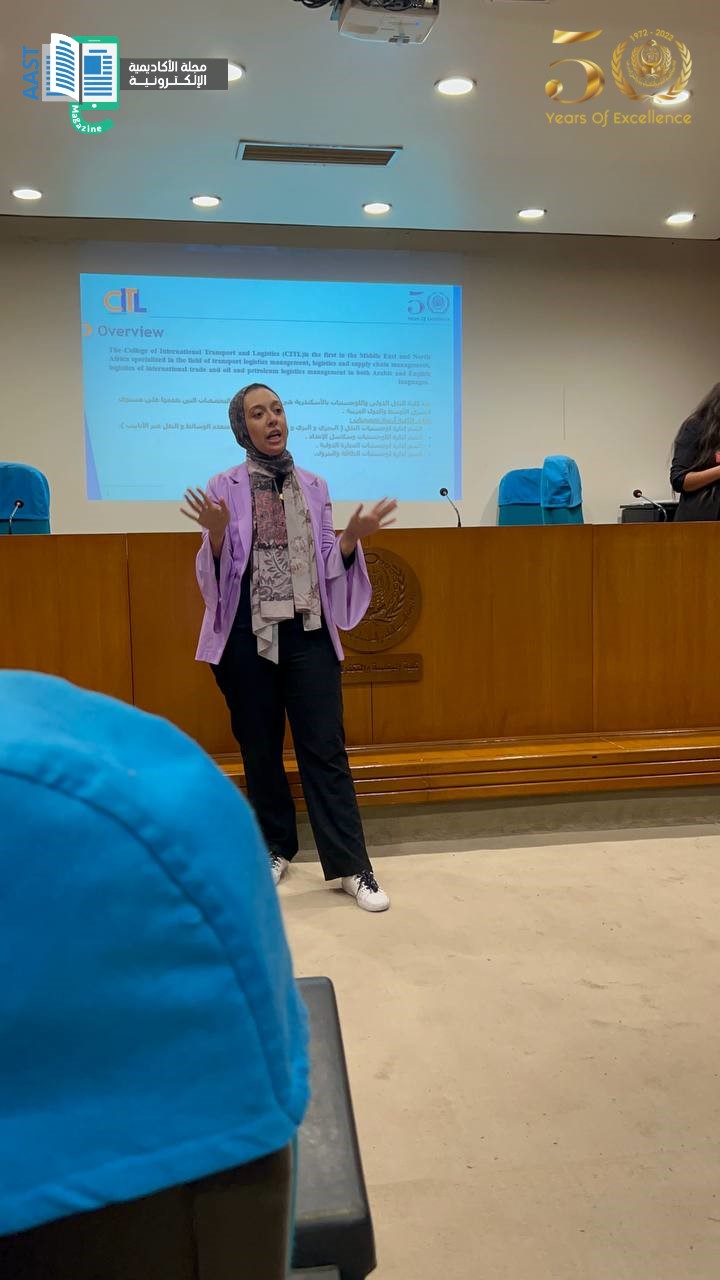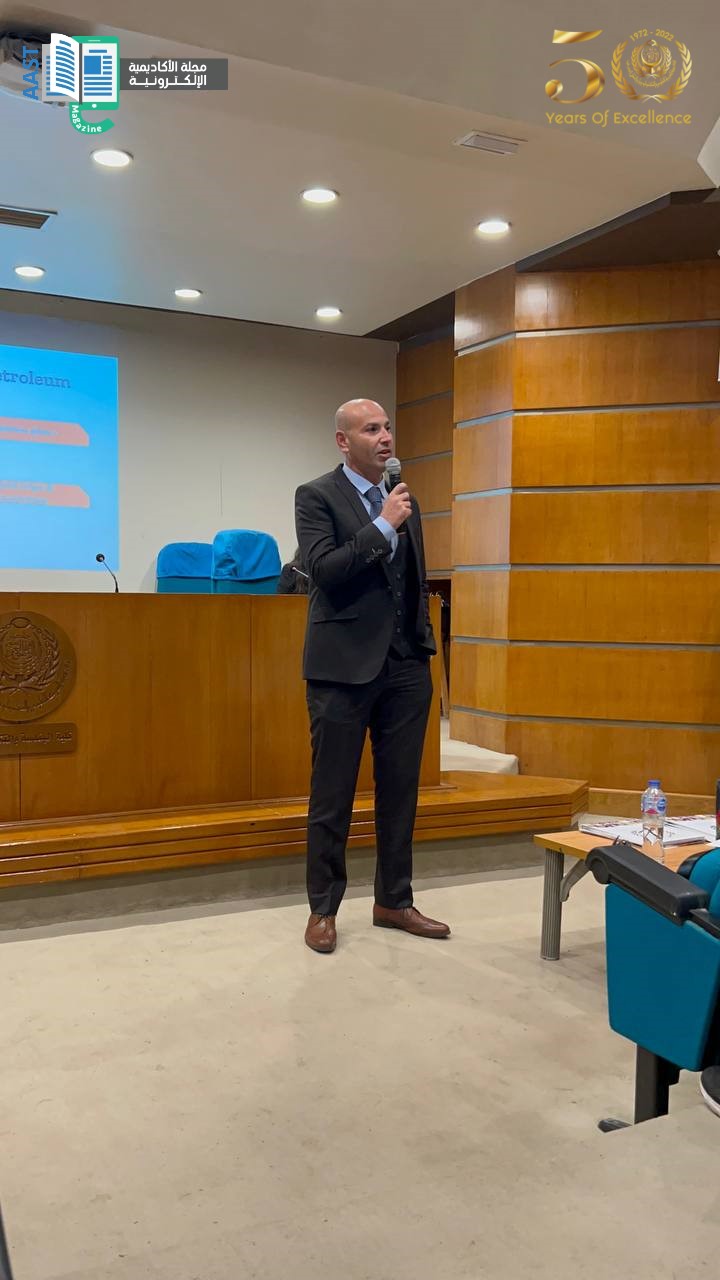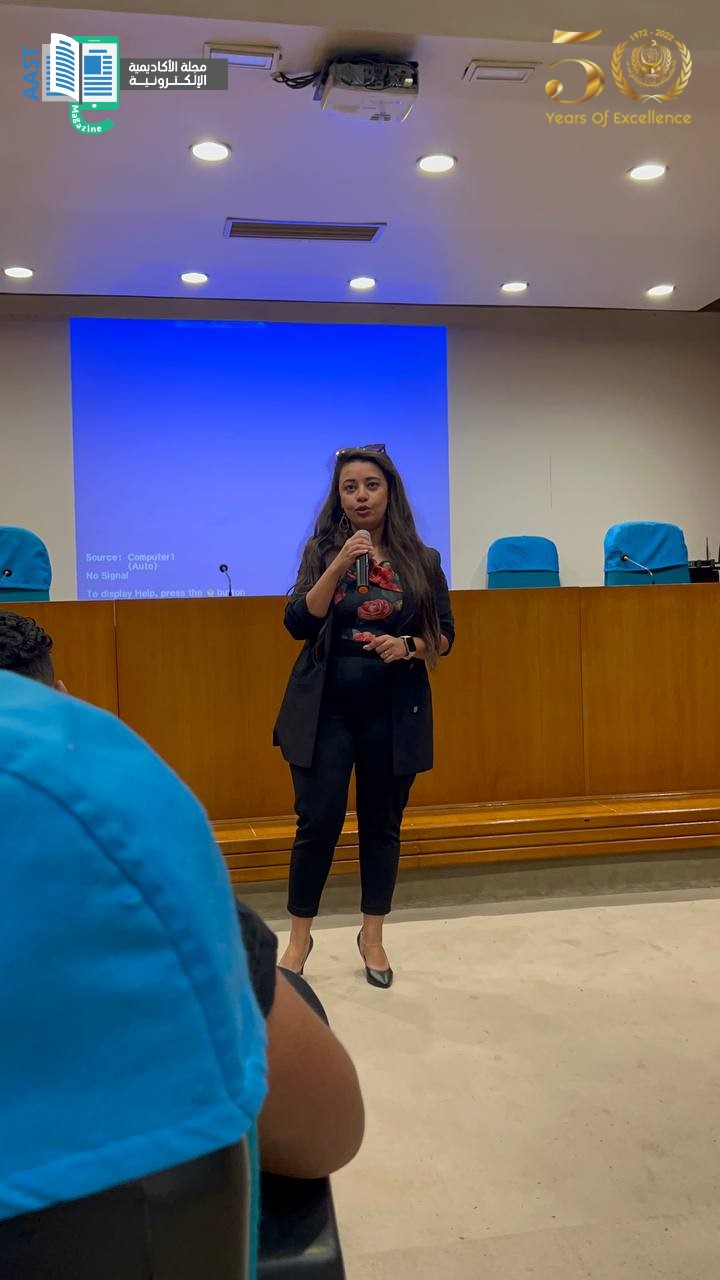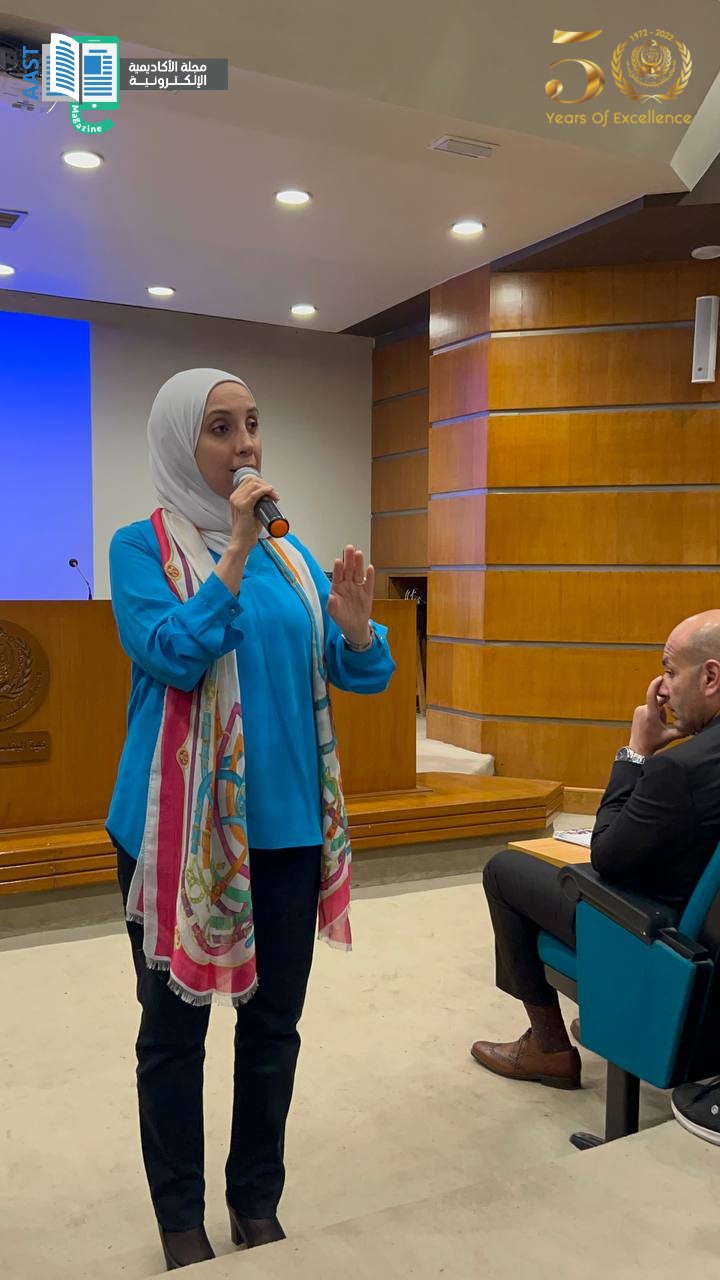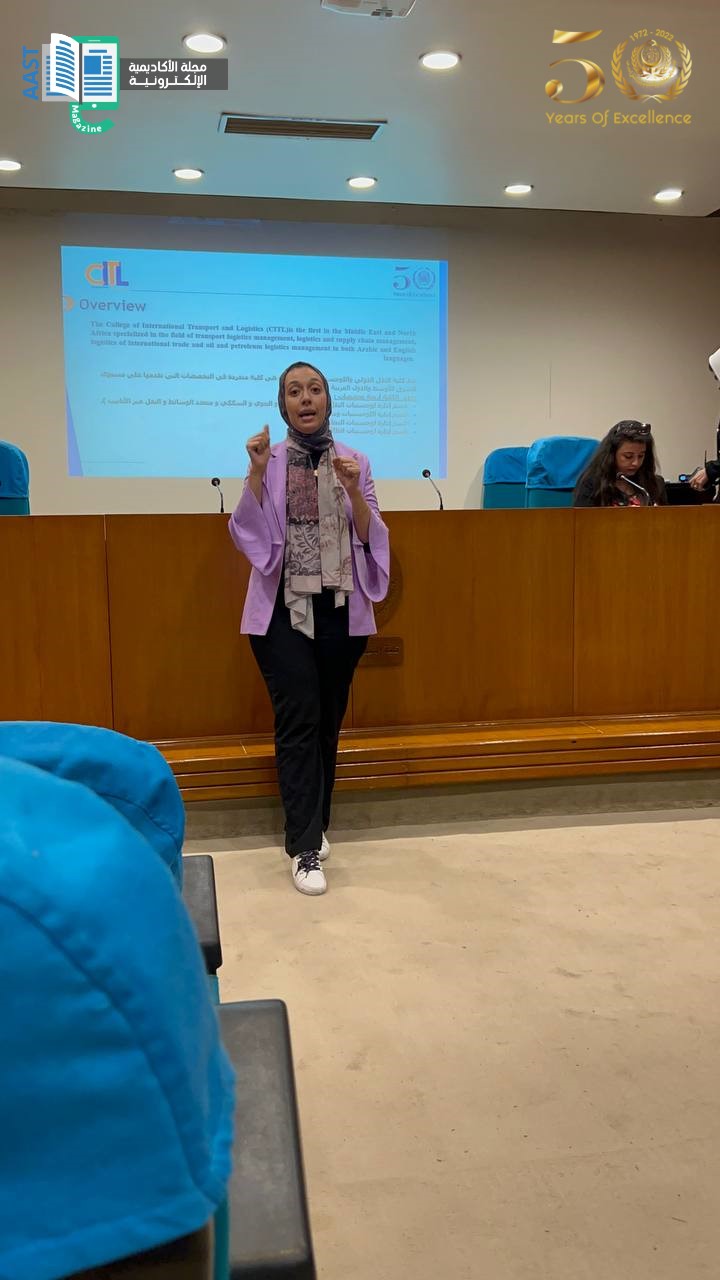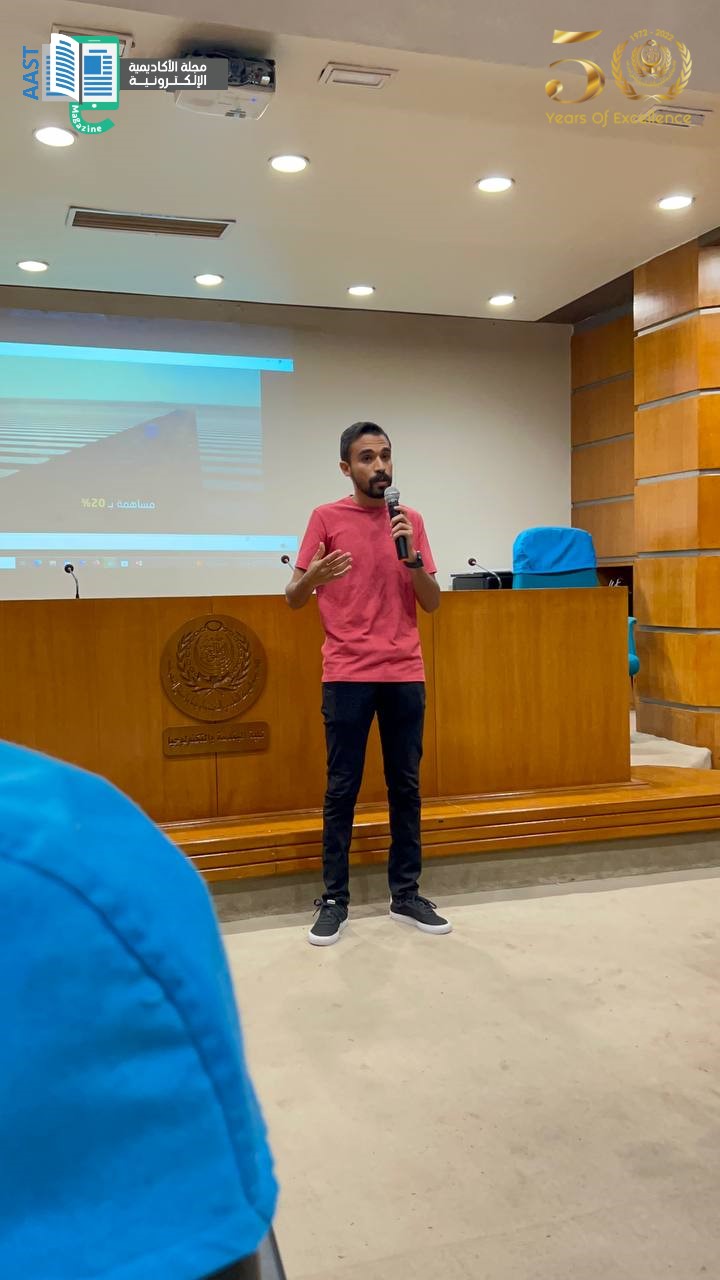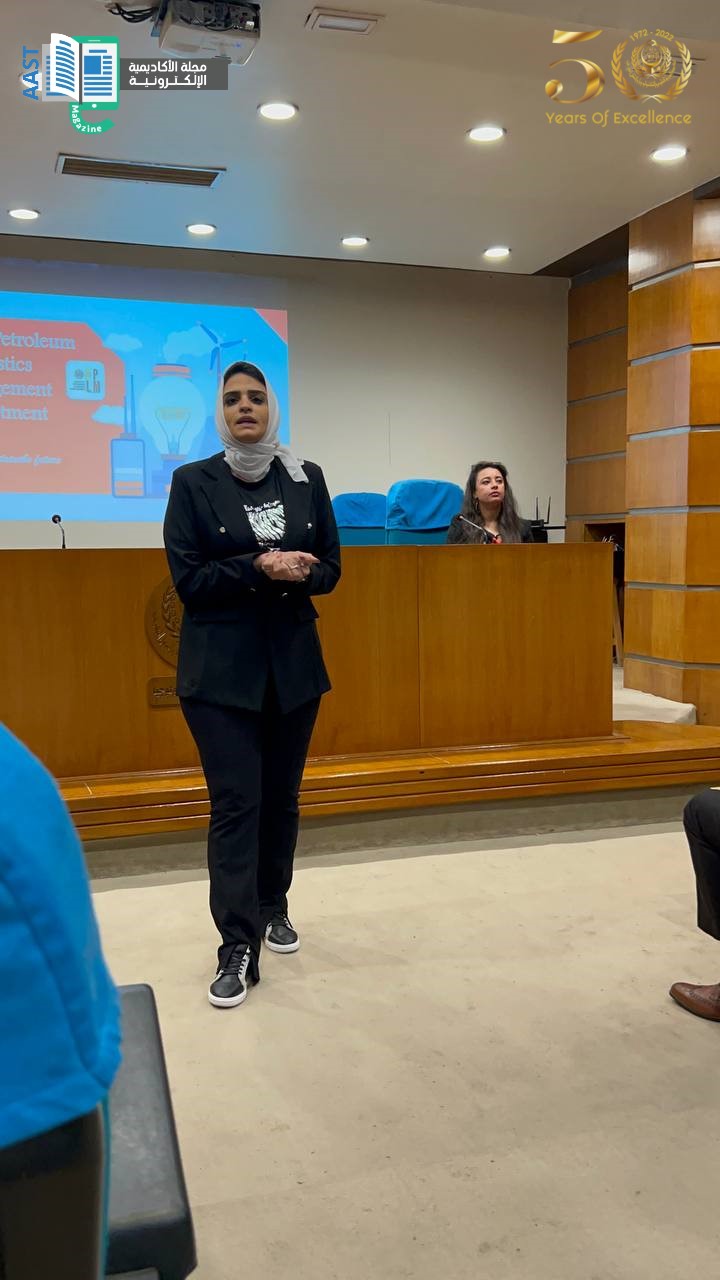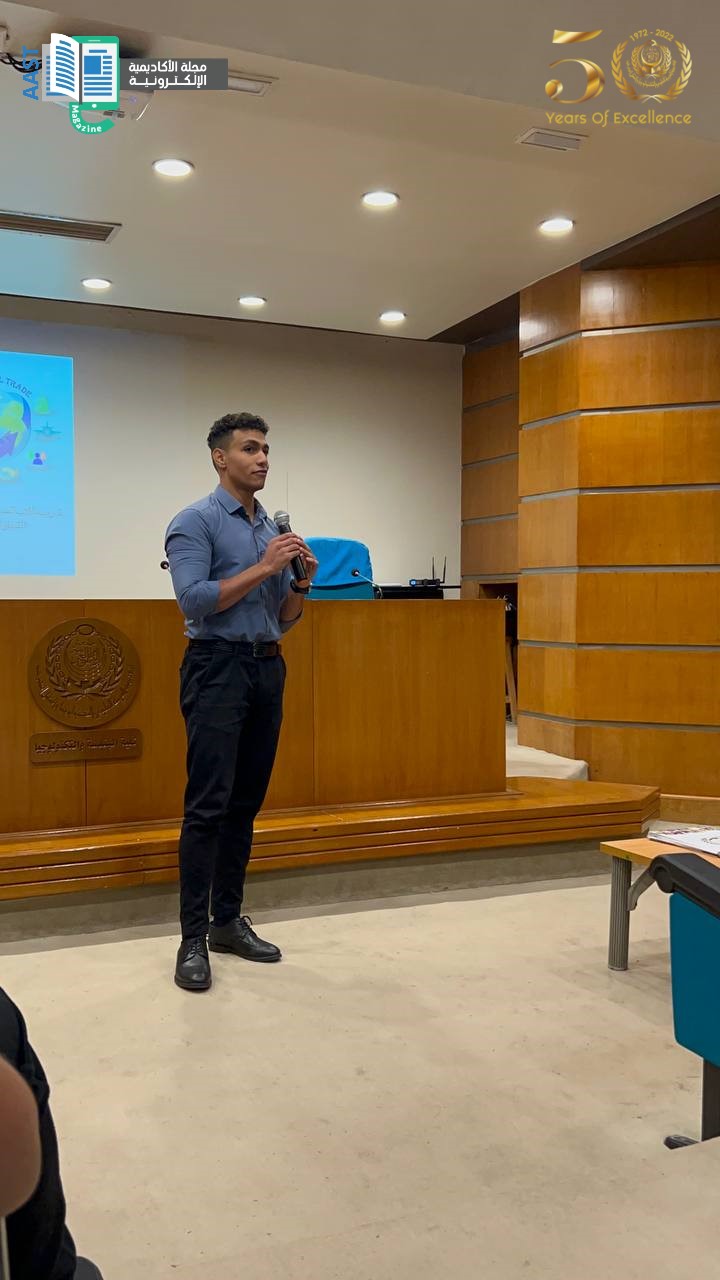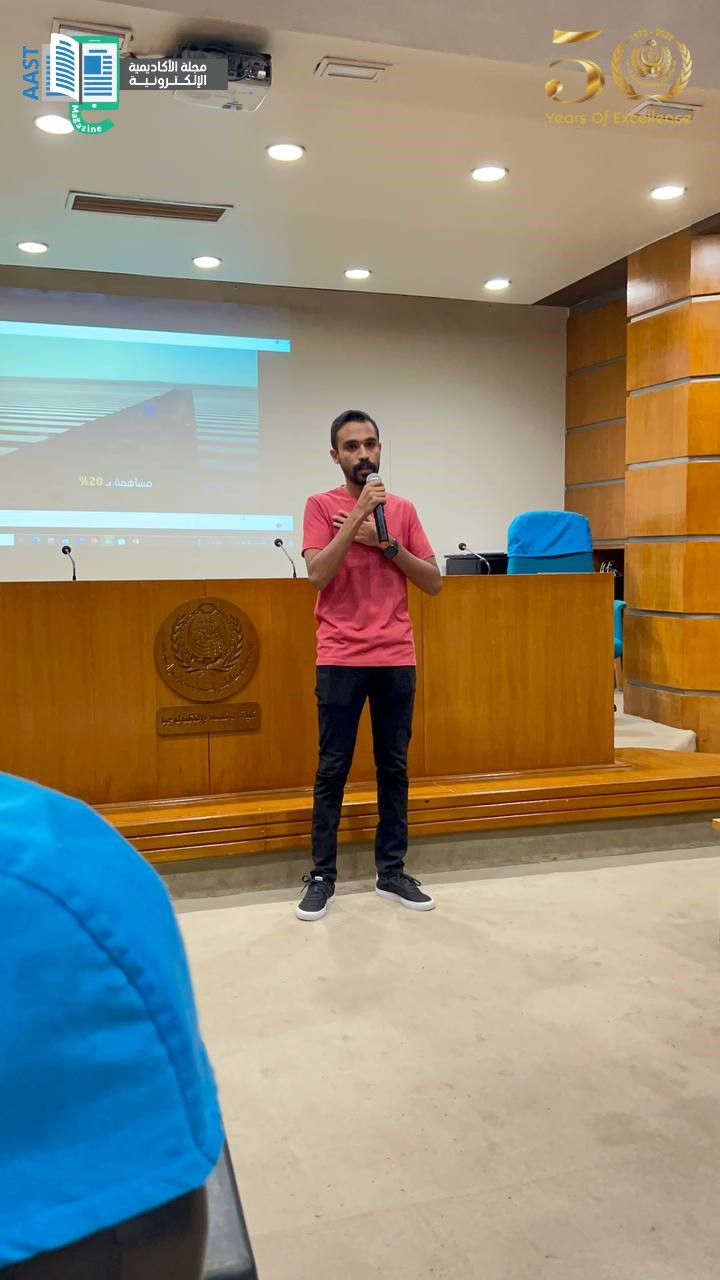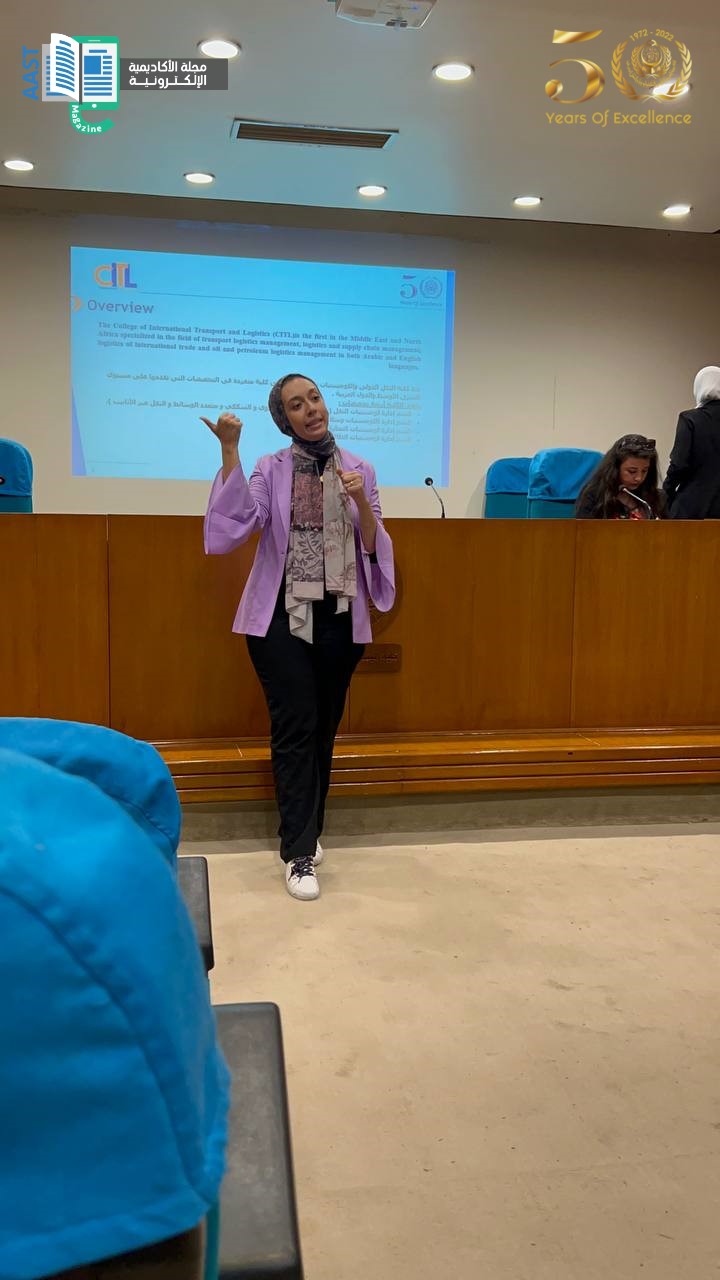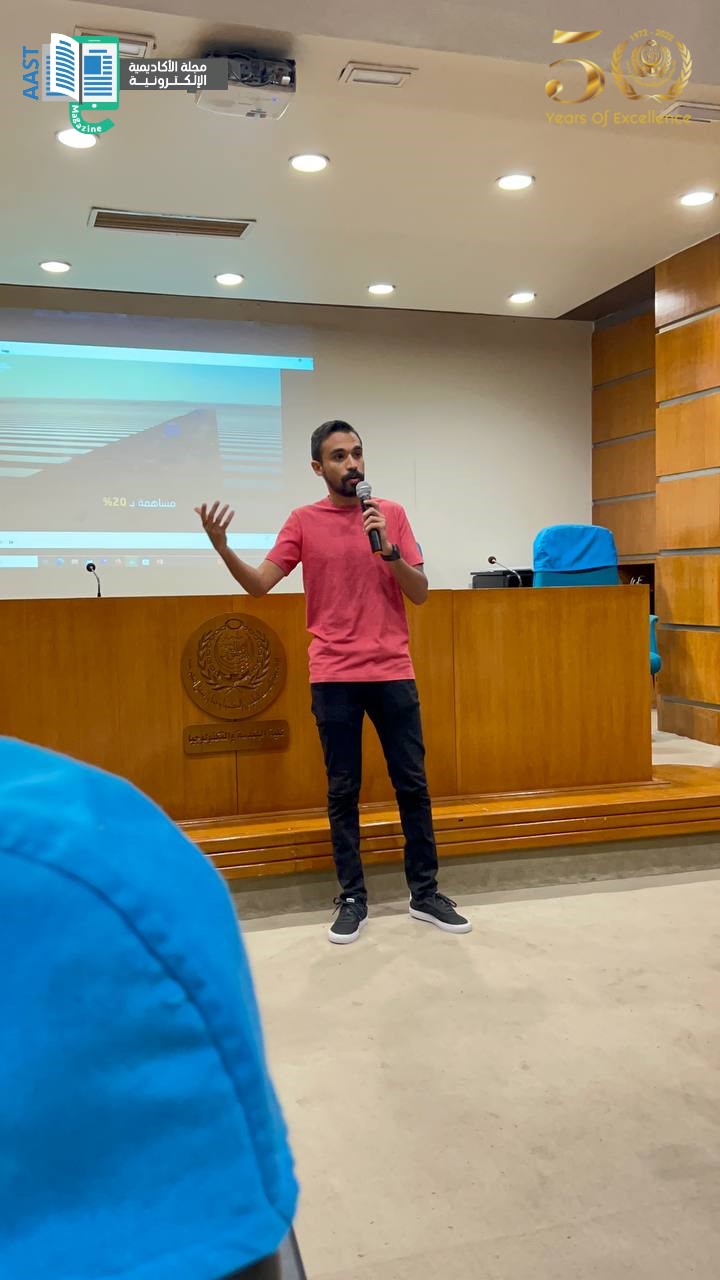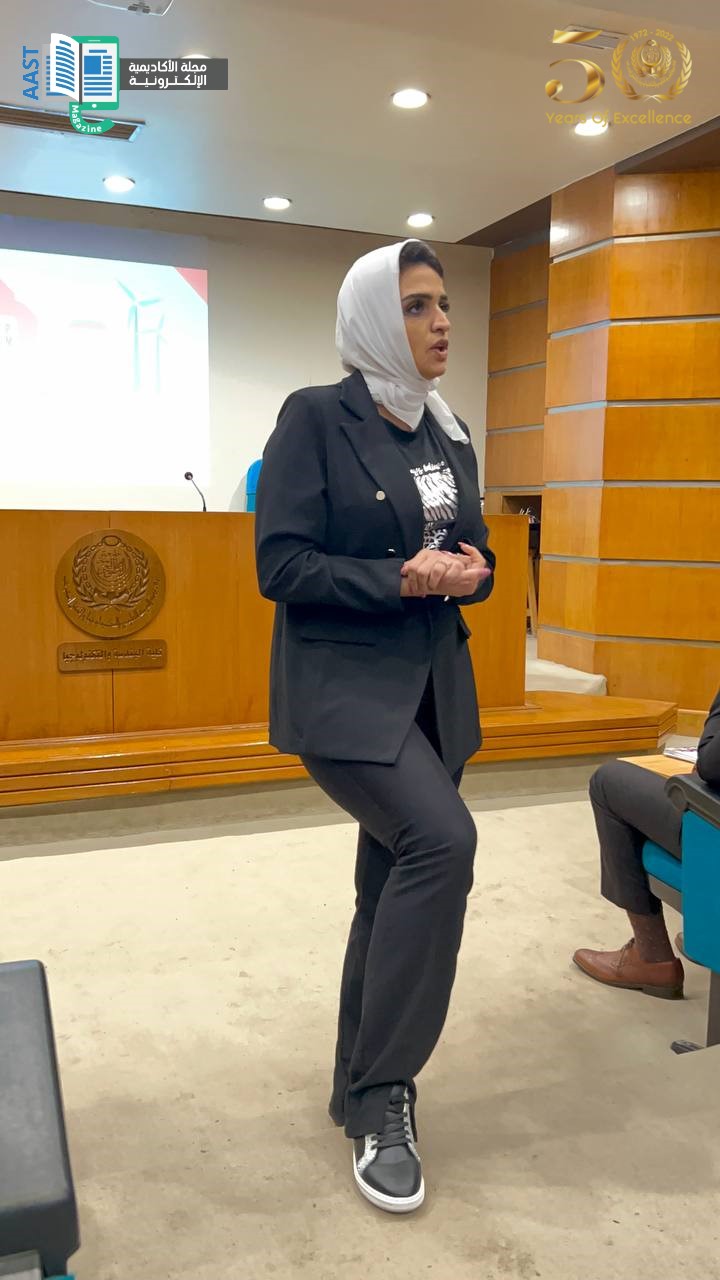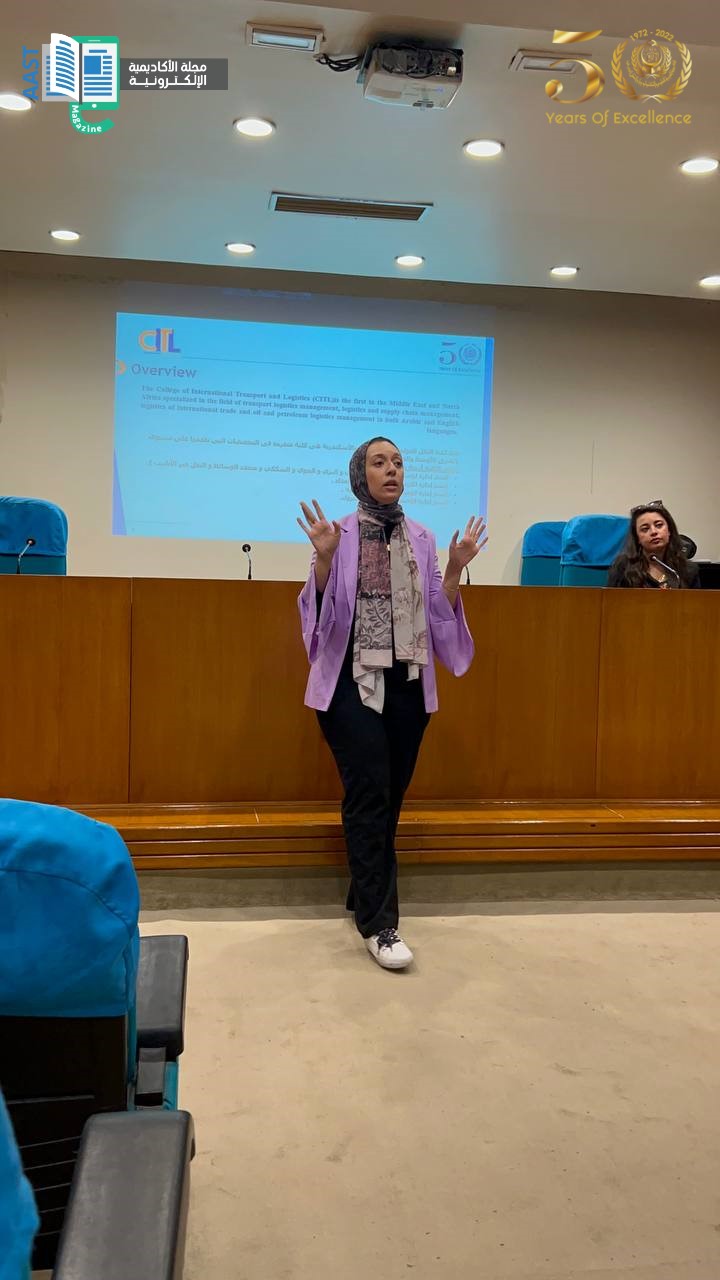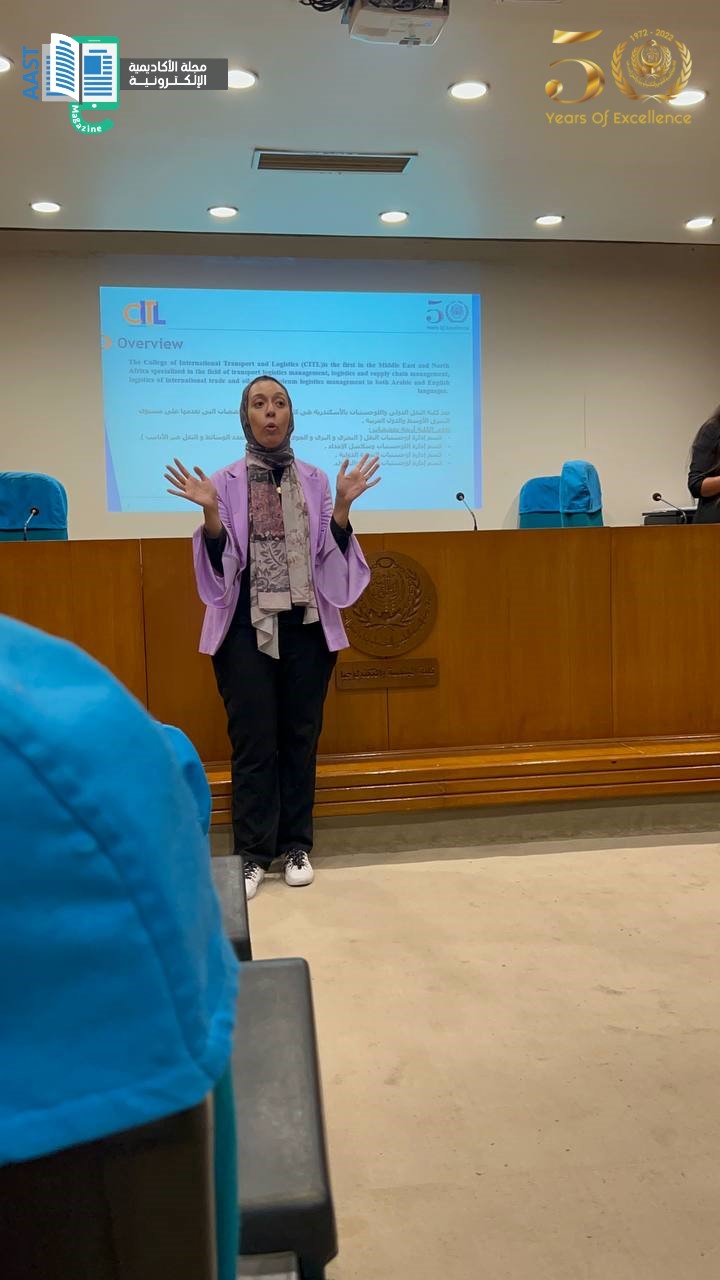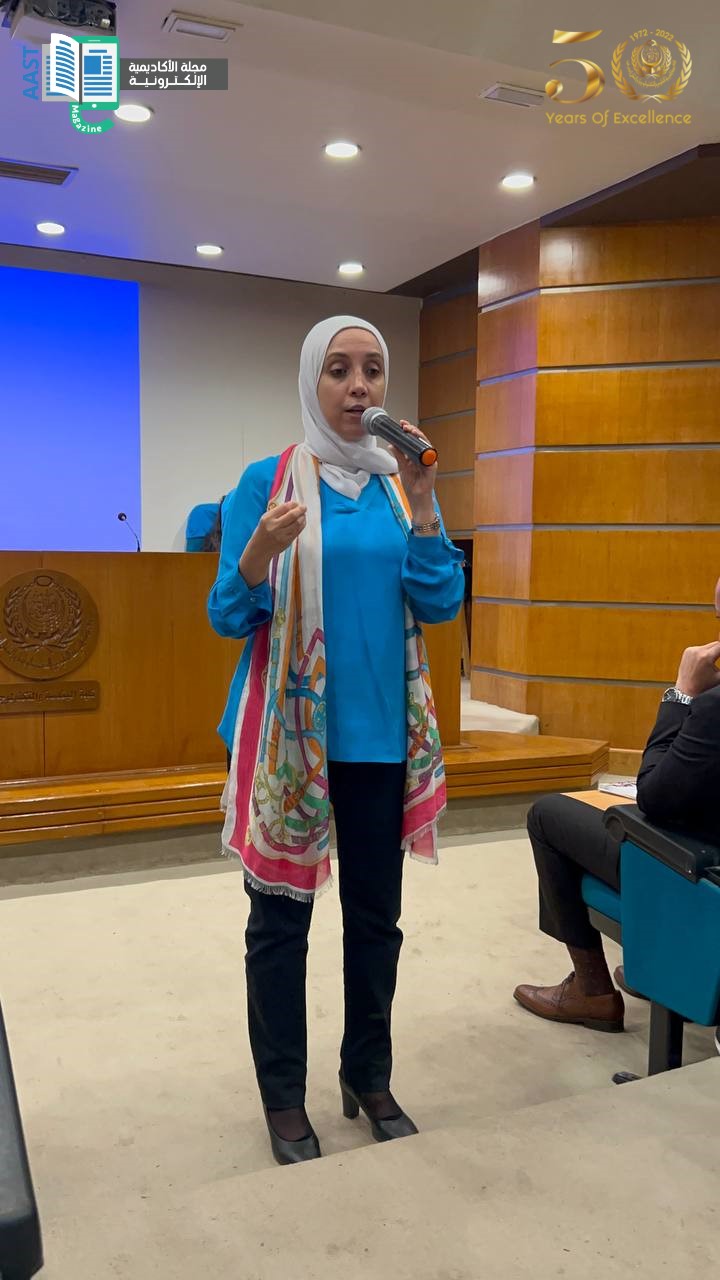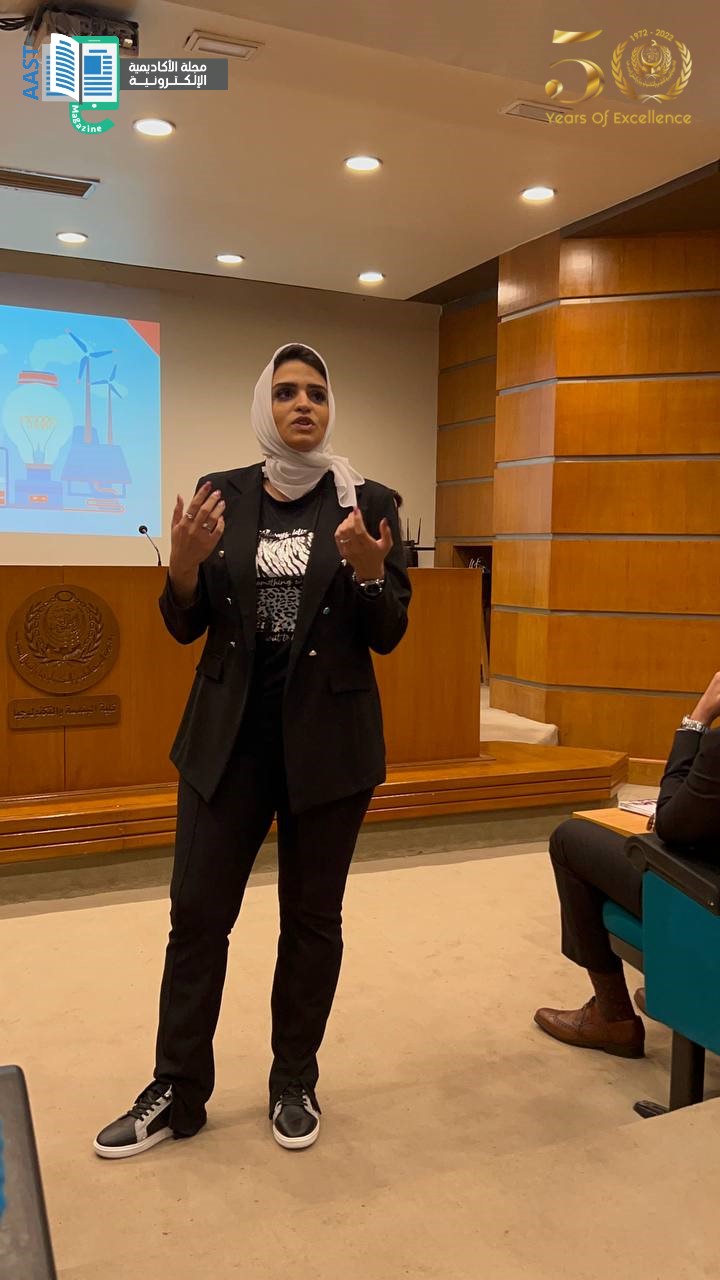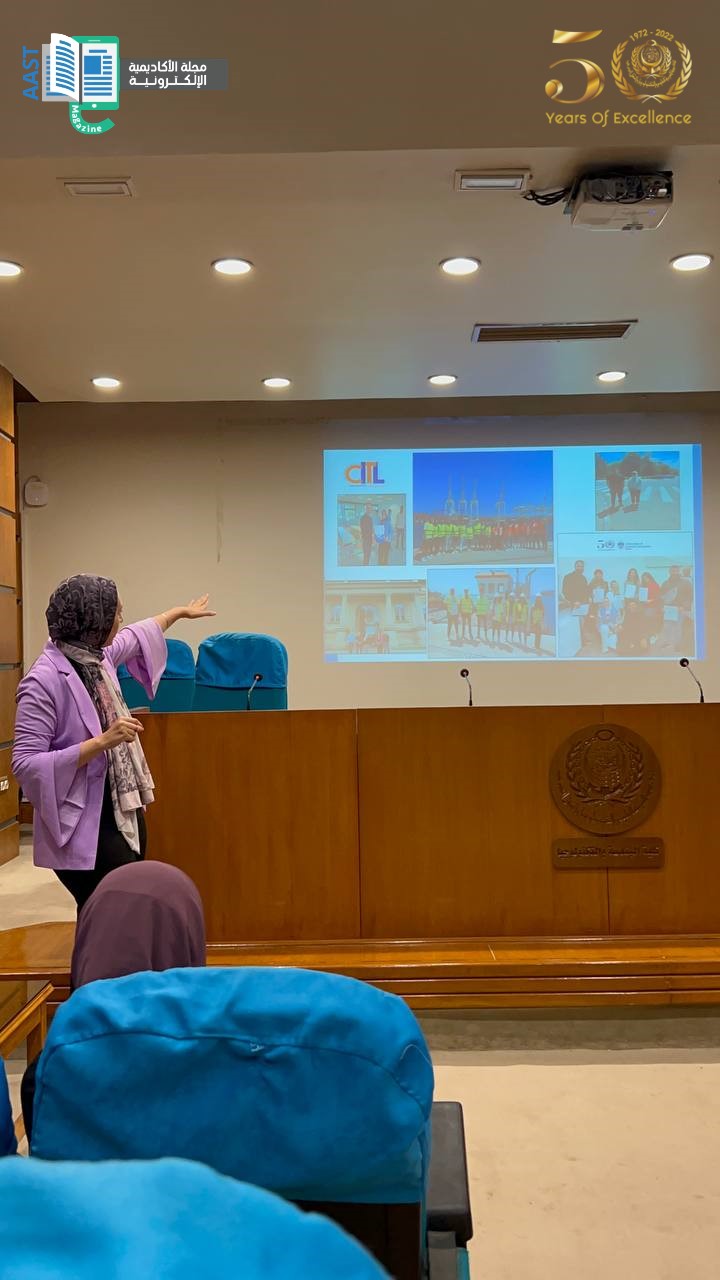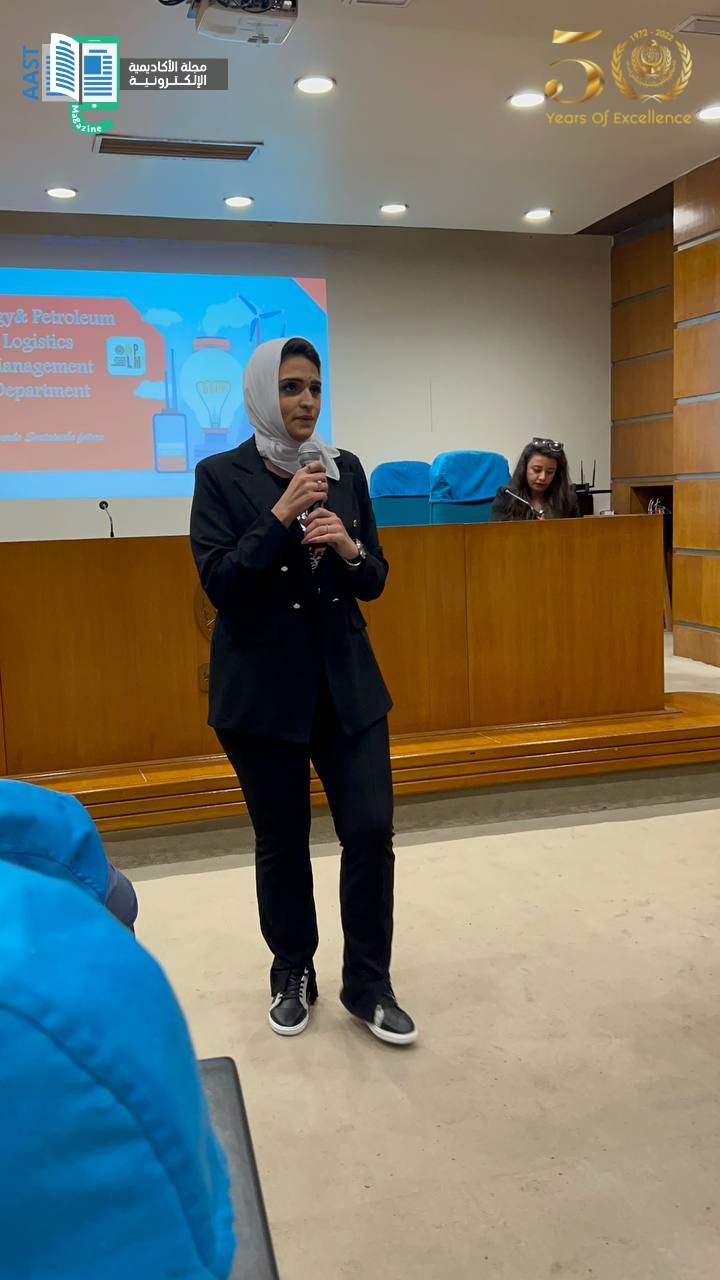Introduction
A recent event organized by the College of Logistics at AAST Arab Academy for Science, Technology, and Maritime Transport provided attendees with a detailed overview of various sections within the field of logistics. Led by the esteemed Dean, Prof. Sarah El Gazzar, and supported by Dr. Sylvia Sawiris, the event aimed to shed light on the diverse aspects of logistics. Among the participants was Marwan Mohamed, a graduate from the Department of Trade Logistics Arabic, who shared his valuable insights and experiences.
Understanding the Logistics Landscape
The event commenced with an introductory speech by Prof. Sarah El Gazzar, a renowned expert in the logistics field. She emphasized the significance of logistics in today’s interconnected world, where efficient supply chains and effective management play a vital role in global commerce. Prof. El Gazzar provided an overview of the different sections within logistics, illustrating their importance and the opportunities they offer for career growth.
Insights from Dr. Sylvia Sawiris
Dr. Sylvia Sawiris, a prominent figure in the logistics industry, took the stage to share her expertise and insights. Drawing from her extensive experience, she delved into the intricacies of supply chain management, inventory control, and transportation logistics. Dr. Sawiris highlighted the evolving nature of logistics and the need for professionals to adapt to emerging technologies and trends.
Marwan Mohamed's Perspective
As a graduate from the Department of Trade Logistics Arabic, Marwan Mohamed brought a unique perspective to the event. He shared his personal experiences and the practical knowledge he gained during his studies. Marwan discussed the challenges and opportunities he encountered in the field, providing valuable insights for aspiring logistics professionals. His presence served as an inspiration to the attendees, showcasing the real-world applications of the knowledge acquired at AAST.
Conclusion
The event led by Prof. Sarah El Gazzar, with the support of Dr. Sylvia Sawiris and the valuable contribution of Marwan Mohamed, provided a comprehensive overview of the different sections within logistics. Attendees gained a deeper understanding of the field and its diverse opportunities. The event’s emphasis on networking and collaboration further enhanced the learning experience, allowing attendees to connect with industry experts and fellow enthusiasts.
As the logistics industry continues to evolve, events like these play a crucial role in equipping aspiring professionals with the knowledge, skills, and connections needed to thrive. The collective efforts of Prof. Sarah El Gazzar, Dr. Sylvia Sawiris, and Marwan Mohamed in organizing and participating in this event exemplify the commitment of AAST’s College of Logistics to providing a holistic education and fostering a strong logistics community.
By staying informed about the various sections within logistics and engaging in collaborative initiatives, attendees left the event better prepared to embark on successful careers in this dynamic and ever-evolving field.
Departments Of Logistics
International trade logistics refers to the management and coordination of various activities involved in the movement of goods and services across borders. It encompasses activities such as transportation, warehousing, inventory management, customs clearance, documentation, and compliance with international trade regulations. The focus is on ensuring the efficient and timely flow of goods between countries, optimizing transportation routes, minimizing costs, and complying with trade laws and regulations.
Supply chain logistics involves the coordination and management of all activities within a supply chain network, including procurement, production, inventory management, transportation, and distribution. It encompasses the entire process of transforming raw materials into finished products and delivering them to customers. Supply chain logistics aims to optimize the flow of materials, information, and services across different stages of the supply chain, with the goal of achieving cost efficiency, responsiveness, and customer satisfaction.
Energy and petroleum logistics specifically deal with the transportation, storage, and distribution of energy resources such as oil, gas, and other petroleum products. It involves managing the logistics operations related to exploration, extraction, refining, and delivery of energy resources to end-users. This includes activities like pipeline transportation, tanker shipping, storage facility management, and supply chain optimization for the energy industry. The focus is on ensuring the timely and secure delivery of energy resources to meet the demands of various industries and consumers.
International transport logistics primarily focuses on the movement of goods and people across international borders. It involves managing the logistics operations related to international transportation modes such as air, sea, road, and rail. The key aspects include route planning, freight forwarding, customs documentation, cargo handling, and compliance with international transportation regulations. International transport logistics aims to ensure the smooth and efficient movement of goods and people between different countries, considering factors like cost, speed, reliability, and safety.
Media Coverage by : Haya ELamaa

